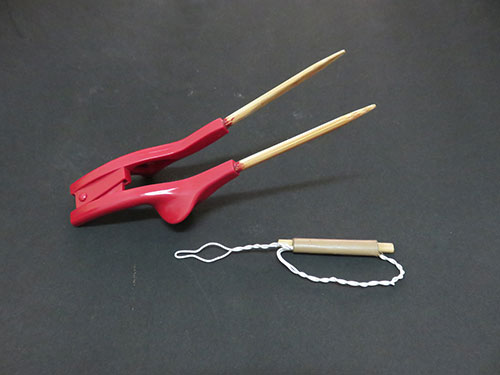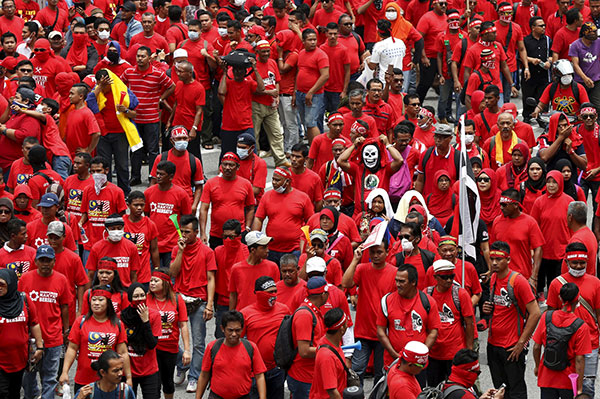Leading is no easy task
October 4, 2015, Sunday Peter Tan, mail@petertan.com
LEADERSHIP comes with heavy responsibilities. There is no glamour in it, really. A lot of hard work is involved in connecting people to one another, initiating projects, making sure everything is running as smoothly as possible and quickly resolving those that aren’t. It surely is not a walk in the park for those taking on this role.
As I am required to take on increasing responsibilities in this aspect because of the work I am involved in, I have been pondering over how I can be effective as a leader, make the organisation function more efficiently and put in place what is lacking.
My involvement as an ordinary member in several disabled people’s organisations (DPOs) gave me valuable insights into their workings. Regrettably, one which I have been with since 1987 was deregistered recently because there were conflicts over money between its leaders and in the process they flouted the constitution, which resulted in the harsh action by the Registrar of Societies.
Needless to say, organisations cannot function without leaders. It is high time to develop more leaders to strengthen the disability movement. I keep seeing the same faces when attending local conferences. Evidently, there is a lack of young leaders to take over the mantle after the current batch. This gap has to be addressed urgently.
Leaders usually start off with lofty ideals: develop the organisation, expand the membership base, raise funds to help members, organise events to promote awareness and eventually build a spanking new building to house the office and run activities.
Over time, these leaders who have been in the same position for a long time tend to place themselves on pedestals. They discard their ideals and use the organisations to pursue their own personal agendas instead. They become more concerned with the survival of their positions and disregard the aspirations of the members.
They consequently lose sight of the objectives and purpose of why they were there in the first place. All they do becomes mechanical. They are reduced to doing simply for the sake of doing. When the leadership becomes jaded like this, the organisation is doomed to failure. If I may say so, these leaders are reflections of some of the politicians we have today.
Oftentimes, decisions made by leaders are unilateral. Ordinary members have no opportunity to be involved in the decision making. They seem to have forgotten the battle cry of “Nothing about us without us” – where they implore the powers that be to include them in the process.
It is the individual members who make up the collective that contributes to the success of any organisation. Decisions that affect all members in general should be by consensus of all rather than the elected few as far as possible.
My major gripe with most organisations is that pertinent information seldom trickles down to the grassroots. The tail doesn’t know what the head is doing or thinking. Truth be told, I have no idea about the programmes of the organisations which I am an ordinary member of except for the reports that come with the notice for the annual general meetings. This should not be the case especially when we are in the Information Age where current news and activities can easily be disseminated.
Many leaders are disconnected from the struggles members have to face on a daily basis. For example, apart from being given wheelchairs and small sums of financial aid, members were seldom engaged to find out what their problems are and how they can be resolved. Many problems cannot be solved with just equipment and money.
For one, DPOs seldom get involved in cases of discrimination against members who in turn have no choice but to swallow the indignity of such acts. Leaders are reluctant to get involved or are not bothered because they are not directly affected.
The interests of members must come first. That was the reason these DPOs were set up for in the first place. Any act of discrimination should not be tolerated but admonished at the highest level. Leaders who are unwilling to stand up for members of his organisation should step down and let others who are prepared to do it take over.
The psychological aspects related to disabilities are often overlooked. It is difficult, if not impossible, to get support for this from the organisations. The only option available is to seek professional help. In reality, all we need is a listening ear and avenues to express ourselves with like-minded people. Peer support and peer counselling can help ease these needs to a large extent. DPOs should look into developing support in this area as it will be a big boost to the mental well-being of members.
Disability rights education is important but these are seldom organised by DPOs. It is not surprising because a number of leaders I know have a poor grasp of these rights. We can only become empowered if we understand we are also entitled to equal opportunities in social participation like everyone else. Seminars and workshops on such topics can be very useful. Personally, I have gained immensely from these courses. Other disabled people should have the chance to undergo similar programmes as I believe they too will benefit from it.
Having said all that, I have come to the conclusion that, as a leader, I must never lose my sense of humanity and empathy. If there is one privilege a leader has, it is the privilege to serve. No matter what organisation I am involved in, the ultimate purpose is to make things better for fellow humans. I must never forget that. Please ‘lempang’ me if I ever do.
Read more: http://www.theborneopost.com/2015/10/04/leading-is-no-easy-task/#ixzz3uN47Z3nq


